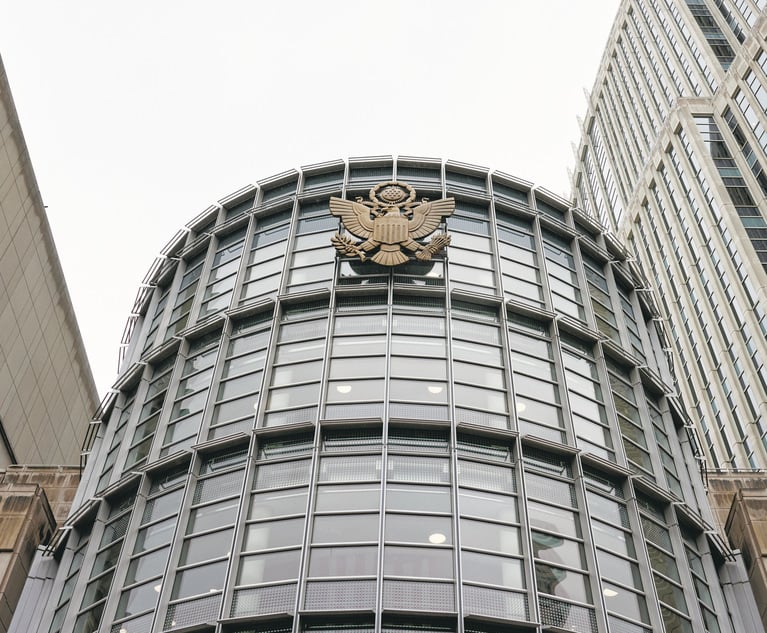Does It Pay To Be a NYC Landlord Anymore?
While tenants' struggles during the pandemic should not be minimized or disregarded, New York City landlords, especially small ones, are feeling the financial pressure too.
June 18, 2021 at 02:00 PM
8 minute read
 Much attention has been given to the plight of tenants unable to pay rent in New York as a result of the COVID-19 pandemic, which spurred a "Cancel Rent" movement across many neighborhoods. While tenants' struggles should not be minimized or disregarded, New York City landlords, especially small ones, are feeling the financial pressure too.
Much attention has been given to the plight of tenants unable to pay rent in New York as a result of the COVID-19 pandemic, which spurred a "Cancel Rent" movement across many neighborhoods. While tenants' struggles should not be minimized or disregarded, New York City landlords, especially small ones, are feeling the financial pressure too.
New York's Limiting Legislation
The last two years have left landlords' heads spinning and hands wringing. In June 2019, massive revisions were made to the laws pertaining to various aspects of the landlord/tenant relationship, narrowing and eliminating certain rights and creating significant confusion. Since the onset of the pandemic in March 2020, court closures, stays of all evictions, and the slow rollout of government funds for rent relief have frustrated and burdened landlords with little to no rental income and few avenues to recoup their losses.
HSTPA. On June 14, 2019, the balance of power shifted with the passage of the Housing Stability and Tenant Protection Act (HSTPA), tipping decidedly in favor of tenants. While the HSTPA predominantly revised New York's rent regulation program by, among other changes, making currently regulated apartments permanently part of the program, locking in preferential rents, and capping recoupment for improvements, other sweeping changes have had significant impact on landlords of market rate apartments, cooperatives, and condominium unit owners. Statewide revisions affecting daily operations include limitations on security deposits and application fees, requiring written notice of late payments, eliminating pet deposits, and necessitating up to 90 days' notice to a tenant for rent increase or lease termination. Summary proceedings were drastically narrowed, limiting recovery to unpaid rent (excluding most other charges and fees), compromising collection of "use and occupancy" during the pendency of a proceeding, and imposing an affirmative duty on landlords to mitigate damages. Time parameters have been expanded, for example, requiring the return of security deposits within 14 days and giving courts discretion to stay evictions for a year (up from six months).
This content has been archived. It is available through our partners, LexisNexis® and Bloomberg Law.
To view this content, please continue to their sites.
Not a Lexis Subscriber?
Subscribe Now
Not a Bloomberg Law Subscriber?
Subscribe Now
NOT FOR REPRINT
© 2025 ALM Global, LLC, All Rights Reserved. Request academic re-use from www.copyright.com. All other uses, submit a request to [email protected]. For more information visit Asset & Logo Licensing.
You Might Like
View All
Disbarred NY Atty Receives 54-Month Prison Sentence After $3M Embezzlement
3 minute read
Unit Owners Sued Board for Failure To Maintain Adequate Fire Insurance: This Week in Scott Mollen’s Realty Law Digest


Law Firms Mentioned
Trending Stories
- 1DeepSeek Isn’t Yet Impacting Legal Tech Development. But That Could Soon Change.
- 2'Landmark' New York Commission Set to Study Overburdened, Under-Resourced Family Courts
- 3Wave of Commercial Real Estate Refinance Could Drown Property Owners
- 4Redeveloping Real Estate After Natural Disasters: Challenges, Strategies and Opportunities
- 5Calif. Fires Should Serve as a Reminder to Fla.’s Commercial Landlords and Tenants Not to Be Complacent
Who Got The Work
J. Brugh Lower of Gibbons has entered an appearance for industrial equipment supplier Devco Corporation in a pending trademark infringement lawsuit. The suit, accusing the defendant of selling knock-off Graco products, was filed Dec. 18 in New Jersey District Court by Rivkin Radler on behalf of Graco Inc. and Graco Minnesota. The case, assigned to U.S. District Judge Zahid N. Quraishi, is 3:24-cv-11294, Graco Inc. et al v. Devco Corporation.
Who Got The Work
Rebecca Maller-Stein and Kent A. Yalowitz of Arnold & Porter Kaye Scholer have entered their appearances for Hanaco Venture Capital and its executives, Lior Prosor and David Frankel, in a pending securities lawsuit. The action, filed on Dec. 24 in New York Southern District Court by Zell, Aron & Co. on behalf of Goldeneye Advisors, accuses the defendants of negligently and fraudulently managing the plaintiff's $1 million investment. The case, assigned to U.S. District Judge Vernon S. Broderick, is 1:24-cv-09918, Goldeneye Advisors, LLC v. Hanaco Venture Capital, Ltd. et al.
Who Got The Work
Attorneys from A&O Shearman has stepped in as defense counsel for Toronto-Dominion Bank and other defendants in a pending securities class action. The suit, filed Dec. 11 in New York Southern District Court by Bleichmar Fonti & Auld, accuses the defendants of concealing the bank's 'pervasive' deficiencies in regards to its compliance with the Bank Secrecy Act and the quality of its anti-money laundering controls. The case, assigned to U.S. District Judge Arun Subramanian, is 1:24-cv-09445, Gonzalez v. The Toronto-Dominion Bank et al.
Who Got The Work
Crown Castle International, a Pennsylvania company providing shared communications infrastructure, has turned to Luke D. Wolf of Gordon Rees Scully Mansukhani to fend off a pending breach-of-contract lawsuit. The court action, filed Nov. 25 in Michigan Eastern District Court by Hooper Hathaway PC on behalf of The Town Residences LLC, accuses Crown Castle of failing to transfer approximately $30,000 in utility payments from T-Mobile in breach of a roof-top lease and assignment agreement. The case, assigned to U.S. District Judge Susan K. Declercq, is 2:24-cv-13131, The Town Residences LLC v. T-Mobile US, Inc. et al.
Who Got The Work
Wilfred P. Coronato and Daniel M. Schwartz of McCarter & English have stepped in as defense counsel to Electrolux Home Products Inc. in a pending product liability lawsuit. The court action, filed Nov. 26 in New York Eastern District Court by Poulos Lopiccolo PC and Nagel Rice LLP on behalf of David Stern, alleges that the defendant's refrigerators’ drawers and shelving repeatedly break and fall apart within months after purchase. The case, assigned to U.S. District Judge Joan M. Azrack, is 2:24-cv-08204, Stern v. Electrolux Home Products, Inc.
Featured Firms
Law Offices of Gary Martin Hays & Associates, P.C.
(470) 294-1674
Law Offices of Mark E. Salomone
(857) 444-6468
Smith & Hassler
(713) 739-1250






